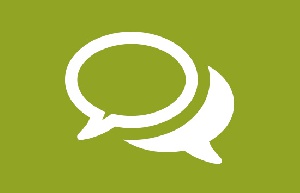Opinions of Thursday, 22 October 2015
Columnist: Ata, Kofi
Should the EC hold Presidential Elections on November 7?
It was reported Monday that the Electoral Commission (EC) has given approval for the 2016 Presidential and Parliamentary elections to be held on November 7 as part of proposals for electoral reforms. Consequently, the Commission is to prepare the necessary Constitutional Instrument (CI) for presentation to Parliament for the elections to be moved from the December 7 date that elections had been conducted in the past to November 7.
According to the EC’s Principal Public Relations Officer, Sylvia Annor, this is to make room for the Commission to be able to organise a run-off in case no candidate is able to secure the 50-plus-one vote required for a first round victory and also to make room for preparation for a handover on January 7 (see, “2016 Elections to be held on November 7”, Graphiconline/Ghanaweb, October 19, 2015).
This is a brief discussion on the disadvantages otherwise of November 7 as Ghana’s permanent general elections date, particularly the presidential elections.
As we all know Ghana has the same presidential election year as the United States and the US holds her presidential elections on the Tuesday after the first Monday in November (this does not necessarily mean the "first Tuesday" in November in an election year because the first day of a month can be a Tuesday as will be in 2016).
The earliest possible date for the US presidential elections is November 2, and the latest possible date being November 8 in any election year. As November 1, 2016 is a Tuesday, the 2016 Presidential election will be held on November 8, 2016 as the first Monday is November 7. This means Ghana’s presidential election in 2016 will be held a day before that of the US.
Is it good for Ghana for to hold her presidential elections so close to those of the US? In my candid opinion, the answer is no for a number reasons.
Ghana’s presidential elections since the Fourth Republic have always been and will continue to be controversial due to poor understanding of democracy, suspicion, weak democratic institutions, win or die affair and lack of electoral transparency by all parties concerned. For this reason, the attention Ghana’s presidential attention receives from the global media and governments, especially Ghana’s development partners are critical to ensuring reduction in the negative aspects of presidential elections in Ghana.
November 7 could even clash with that of US in some election years and global attention would be diverted to the US and not Ghana when the presidential elections in Ghana are too close to or on the same dates as the US. In such scenario the risk of rigging or abuse by especially, incumbency but not exclusively could be high.
This is even more so in 2016 because that is the first year the US will have a woman presidential candidate. Moreover, it also the first time since President Franklin D Roosevelt won four consecutive elections for the Democratic Party that the party has a better chance of winning a third consecutive term.
The Republican Party won third consecutive term with Regan and George Bush Senior. Last but not least, the 2016 US election is most likely to be the second Clinton versus Bush. The excitement will certainly divert world’s attention to that of the US and not Ghana on November 7, 2016 and Ghana’s elections on that day will vanish into insignificant on the global electoral calendar.
Though the EC’s reasons for moving the general elections to a month earlier are good, the first week of November are not good days for elections if Ghana wants her democratic and development partners to show interest in her elections. In fact, after reading that the IEA had recommended November 7 as General Election Date (see “EC urged to conduct elections in November”, GNA/Ghanaweb August 22, 2014), I was concerned by the potential clash with the US elections and contacted the convenor of IEA’s Winner Takes All Advisory Group by e-mail that very day to alert the Group about this problem and suggested October 7 instead.
In fact, the convenor acknowledged my e-mail as follows “Kofi, Excellent suggestion. We haven't thought about this (that is, the US elections in early November). Will push it in our meetings with the EC. This contribution is from you and we will duly acknowledge you for it. Cheers”.
It appears the concern and the promise by the convenor of the Group to take the suggestion of October 7 to the EC either got lost in translation or the EC in its characteristic fashion of “yentie obiaa” disregarded the suggestion, if IEA proposed it to the EC.
It is not too late for the EC to change its mind about November 7 as the date for presidential elections in Ghana. If the elections must be held on the seventh day of the month, then I humbly suggest October 7 to avoid any clash with that of the US or one week before or after the US Elections in November. October 7 will give the EC more time to organise a run-off in the event of no candidate gaining the required fifty percent plus one vote in the first round. It will also give the incoming administration time to prepare adequately for office as well as the outgoing government sufficient time to prepare handover notes in the case of change of government.
It is disappointing that the main political parties, especially NDC and NPP have kept quiet over this issue. Then after the CI has matured in Parliament they will cry foul that the date was selected so that the world media will not pay attention to the elections in Ghana in order for the incumbent to collude with the EC to manipulate the elections. November 7 is bad and should be changed to October 7.
Kofi Ata, Cambridge, UK













